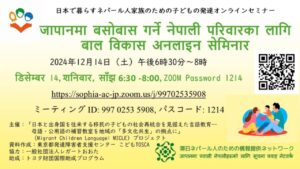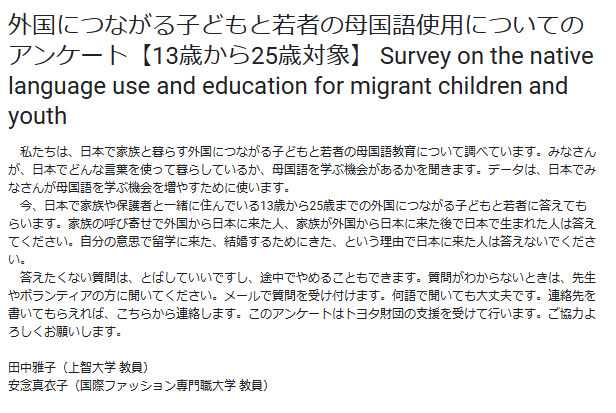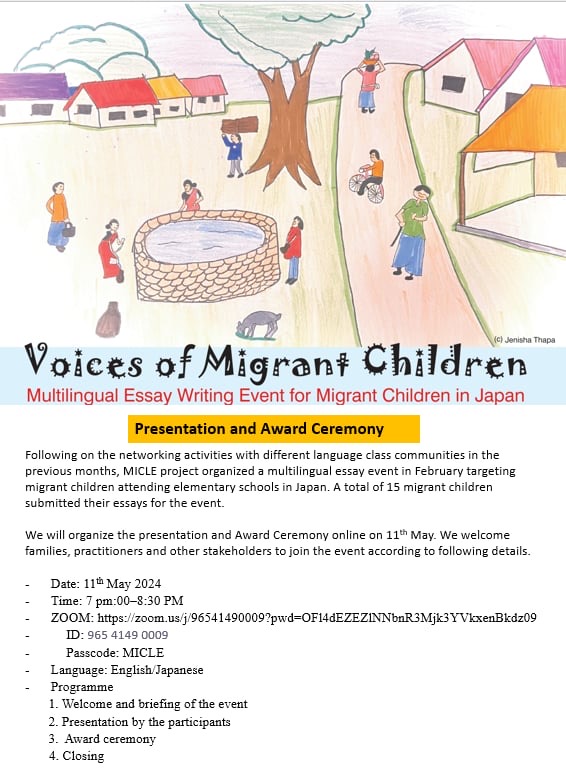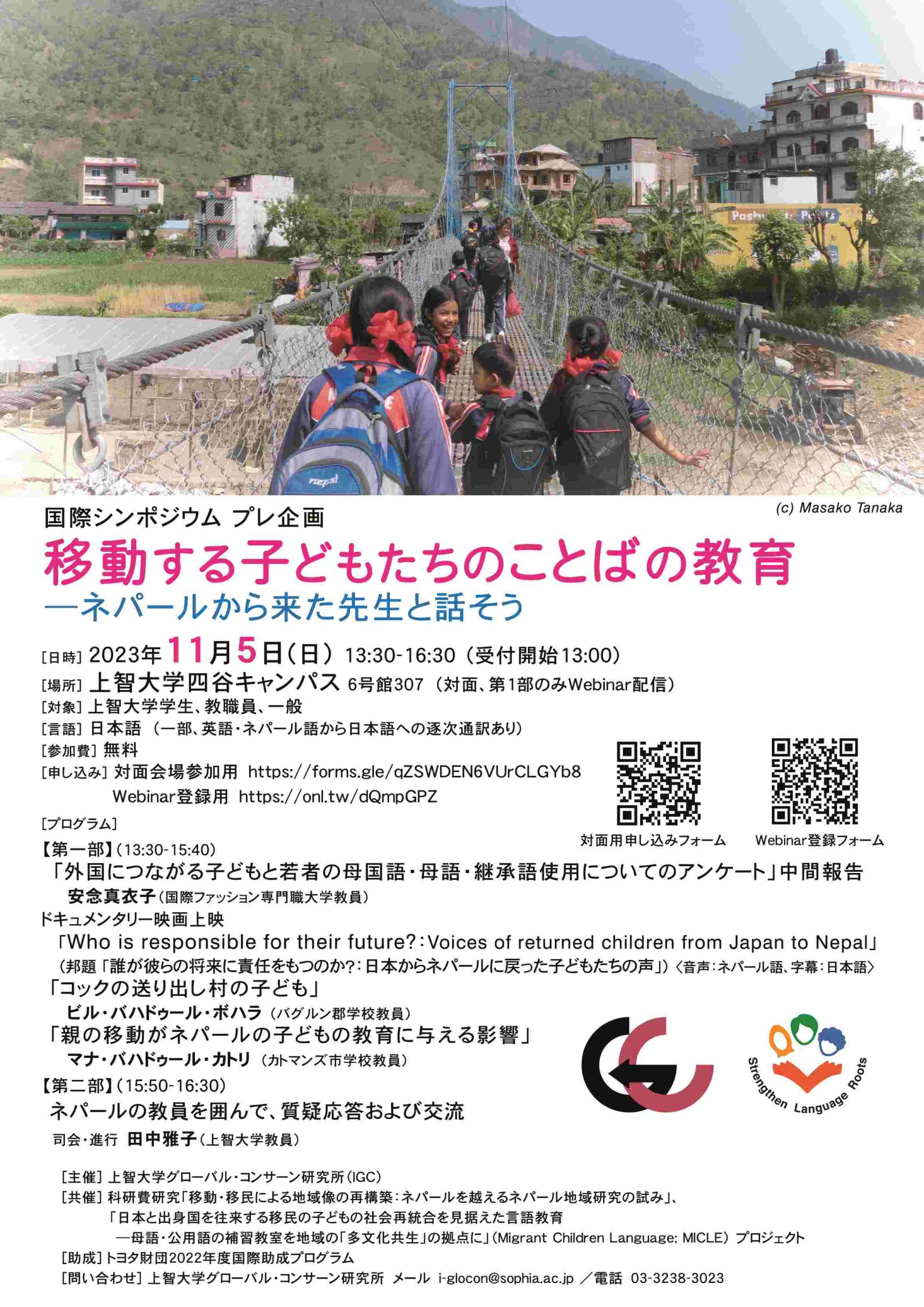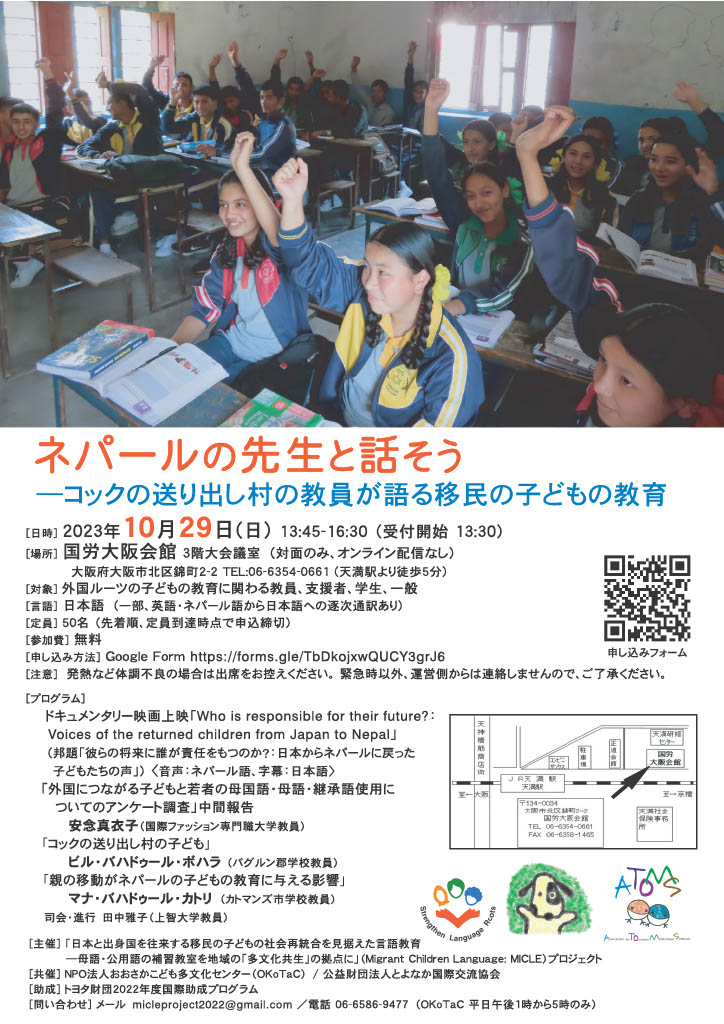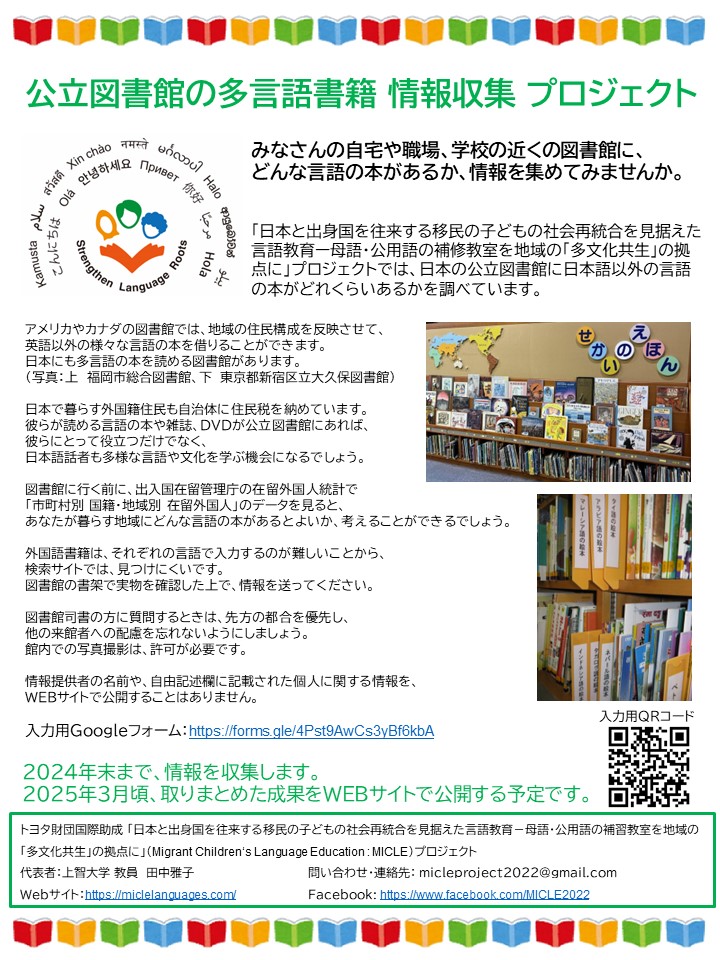we are conducting a survey on native language education for transnational migrant children and youth living with their families or guardians in Japan. Please click this link to fill up the survey form
Introduction
Mother tongue and national language education for transnational migrant children (MICLE Project) aims to research and enhance opportunities for Japan based migrant children to learn their mother tongue and the language of their country of origin. This project has been conceptualized in the backdrop of limited opportunities for migrant children in Japan to learn their language and culture in Japanese schools.
…
Online Child Development Seminar for Nepalese Families Living in Japan Date: December 14th, 2024, Saturday Time: 18:30 to 20:00 Zoom…
ACTIVITIES AND METHODS
Fact-finding Survey
In Japan: Language Education Survey for Children from different sending countries
In Nepal: Research of Challenges in Social Reintegration of Children Returning from Japan
People's Exchange
(1) Exchange between the teachers and students of supplementary language classes in Japan, as well as with visitors to the supplementary classes
(2) Online exchange sessions between the teachers and students of Nepali language supplementary classes in Tokyo, Osaka, Nagoya, and Fukuoka
(3) Study visits of two Nepalese school teachers to Japan
(4) Online exchange sessions among the practitioners of Nepali language education for Nepali children abroad
Policy Proposals
In Japan: How can we involve the local governments and people of host countries in organizing supplementary classes for migrant children to learn their mother tongues or the national languages of their mother countries? How can we utilize such supplementary classes as a base to practice genuine "multicultural coexistence" in Japan?
In Nepal: How can we support the governments and people of Nepal to produce Nepali textbooks for the children of Nepali migrants specifically?
Frequently Asked Questions
There may be more than a few people who say, “I heard this word for the first time” or “I didn’t know it.”
In general, you must be of foreign nationality, have Japanese nationality (or dual nationality) and have one of your guardians from a foreign country, have both or one of your guardians from a foreign country,
or have been born overseas/overseas. It means a child whose first language is not Japanese because of their upbringing .
Although the term is not widely known, it is a definition that is generally shared among supporters and stakeholders of such children and young people.
There may be more than a few people who say, “I heard this word for the first time” or “I didn’t know it.”
In general, you must be of foreign nationality, have Japanese nationality (or dual nationality) and have one of your guardians from a foreign country, have both or one of your guardians from a foreign country, or have been born overseas/overseas. It means a child whose first language is not Japanese because of their upbringing .
Although the term is not widely known, it is a definition that is generally shared among supporters and stakeholders of such children and young people.
There may be more than a few people who say, “I heard this word for the first time” or “I didn’t know it.”
In general, you must be of foreign nationality, have Japanese nationality (or dual nationality) and have one of your guardians from a foreign country, have both or one of your guardians from a foreign country,
or have been born overseas/overseas. It means a child whose first language is not Japanese because of their upbringing .
Although the term is not widely known, it is a definition that is generally shared among supporters and stakeholders of such children and young people.
There may be more than a few people who say, “I heard this word for the first time” or “I didn’t know it.”
In general, you must be of foreign nationality, have Japanese nationality (or dual nationality) and have one of your guardians from a foreign country, have both or one of your guardians from a foreign country,
or have been born overseas/overseas. It means a child whose first language is not Japanese because of their upbringing .
Although the term is not widely known, it is a definition that is generally shared among supporters and stakeholders of such children and young people.
There may be more than a few people who say, “I heard this word for the first time” or “I didn’t know it.”
In general, you must be of foreign nationality, have Japanese nationality (or dual nationality) and have one of your guardians from a foreign country, have both or one of your guardians from a foreign country,
or have been born overseas/overseas. It means a child whose first language is not Japanese because of their upbringing .
Although the term is not widely known, it is a definition that is generally shared among supporters and stakeholders of such children and young people.
Support Miclelanguage
Lorem Ipsum is simply dummy text of the printing and typesetting industry. Lorem Ipsum has been the industry’s standard dummy text ever since the 1500s,

